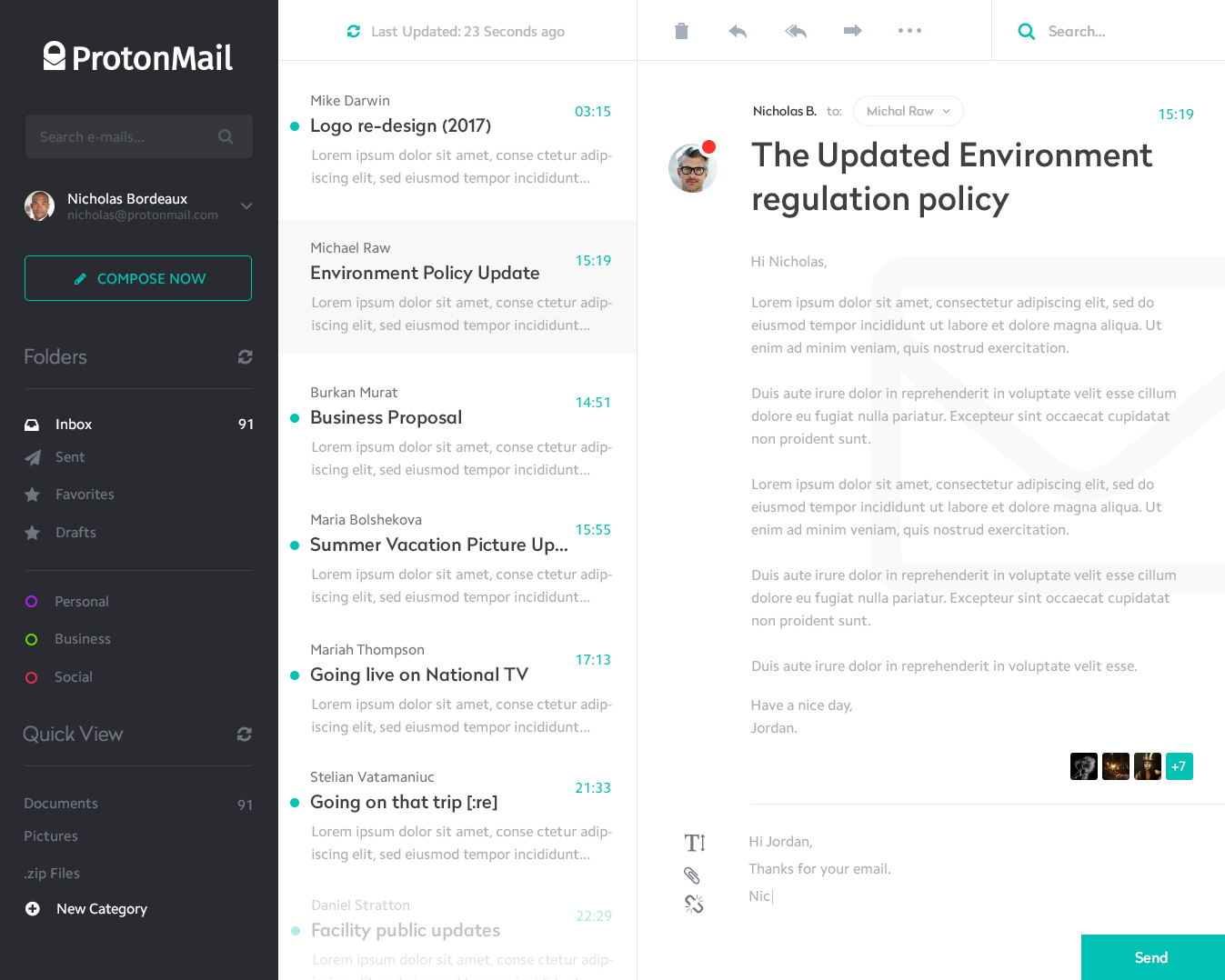

Just because you don’t get a bill for your webmail account doesn’t mean it’s free: You pay by allowing the provider to mine your messaging for data that helps target ads (among other things). How to Set Up Two-Factor Authentication.How to Record the Screen on Your Windows PC or Mac.How to Convert YouTube Videos to MP3 Files.How to Save Money on Your Cell Phone Bill.How to Free Up Space on Your iPhone or iPad.How to Block Robotexts and Spam Messages.This information can then be shared with other members of the Five Eyes allegiance. (And in the U.S., emails are considered “abandoned” after 180 days, so the government can request them without a warrant.) This includes inbox contents, metadata, IP addresses, and more.

and may be forced by law to turn over information on its users. Switzerland is not part of the Five Eyes intelligence-sharing agreement that exists between the U.S., Canada, Australia, the United Kingdom, and New Zealand.īy comparison, Google is located in the U.S. This means that ProtonMail can’t be forced to hand over data to authorities in the U.S. In addition to not being able to read the email stored on their servers, ProtonMail is based in Switzerland, where privacy laws are notoriously strict. RELATED: What Is End-to-End Encryption, and Why Does It Matter? ProtonMail’s Servers Are Located in Switzerland Unlike with ProtonMail, which explicitly supports the feature, working with PGP inside of Gmail is much less streamlined and borderline unusable on mobile. Using PGP inside of Gmail is possible but difficult, with browser extensions like Mailvelope and FlowCrypt making it easier to manage.


 0 kommentar(er)
0 kommentar(er)
